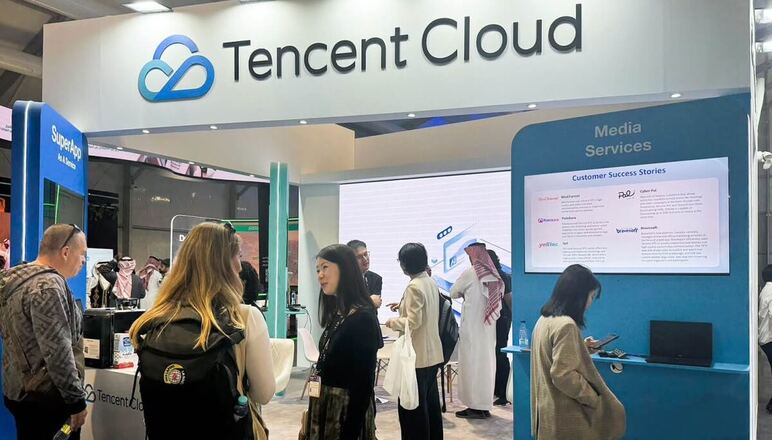
Tencent used its 2025 Global Digital Ecosystem Summit in Shenzhen to unveil a sweeping set of scenario-based AI capabilities designed to accelerate enterprise adoption of intelligent tools and support global expansion. The initiative brings together intelligent agent applications, ‘SaaS + AI’ solutions, and upgrades to Tencent’s proprietary large language models under the banner of advancing both industry efficiency and international growth.
Dowson Tong, Senior Executive Vice President of Tencent and CEO of the Cloud and Smart Industries Group, emphasized the dual focus on practical applications and international expansion. He framed the launch as a way to help enterprises scale sustainably while adopting AI that directly impacts operational efficiency.
The centerpiece of the announcement is the Agent Development Platform 3.0, a system that enables enterprises to design and deploy autonomous AI agents tailored to business scenarios such as customer service, marketing, research, and logistics. Complementing this is the newly introduced “Agent Runtime,” a foundational infrastructure environment that supports the deployment and management of these agents at scale.
The company also expanded its SaaS + AI offerings, adding features like AI Minutes in Tencent Meetings, which has seen rapid adoption, and Tencent LearnShare, now serving hundreds of thousands of enterprises with high response accuracy. CodeBuddy, its AI-powered coding tool, has already demonstrated significant efficiency gains, shortening coding cycles and improving R&D productivity.
Tencent also spotlighted advancements in its Hunyuan large model family, particularly the Hunyuan 3D suite, aimed at media and gaming sectors. With over 2.6 million downloads on Hugging Face, the Hunyuan 3D models are among the most widely used open-source 3D tools worldwide. Over the past year, Tencent has released more than 30 models and continues to move aggressively toward open-source availability, spanning translation, hybrid inference, and multimodal generation.
Internationalization remains central to Tencent’s strategy. The company reported that its overseas client base has doubled in the past year, with consistent double-digit growth across Asian markets including Southeast Asia and Japan. It highlighted collaborations with enterprises such as DANA, MUFG Bank (China), Prosus, Indosat Ooredoo Hutchison, and True IDC, among others, reflecting its growing role in supporting global expansion.
55 Data Centers across 21 Markets
At the Tencent Cloud International Summit, new partnership agreements were signed with companies across Asia Pacific, the Middle East, Europe, and North America, extending Tencent’s ecosystem of global collaborators. Poshu Yeung, Senior Vice President at Tencent Cloud International, underlined the importance of providing localized solutions, citing the international roll-out of products like the Tencent Cloud Agent Development Platform, CodeBuddy, and Cloud Mall.
Tencent is also embedding AI directly into its infrastructure services. EdgeOne, its security and acceleration platform, now integrates with large language models via the Model Context Protocol, introducing EdgeOne Pages. This feature reduces website deployment time dramatically, attracting more than 100,000 users in just three months.
The infrastructure investment pipeline is equally ambitious. Tencent Cloud currently operates 55 data centers across 21 markets and is preparing to invest $150 million to build its first Middle Eastern facility in Saudi Arabia, alongside a third data center in Osaka, Japan. Global technical support centers in cities such as Palo Alto, Frankfurt, Singapore, and Seoul round out its operational backbone.
As AI-driven workloads demand greater specialization and scalability, Tencent’s combination of intelligent agents, SaaS + AI solutions, and global infrastructure expansion signals a push to become a central enabler of enterprise digital transformation. The company’s multi-layered strategy – bridging local compliance, open-source model development, and globalized service delivery – positions it to compete aggressively in shaping the future of AI-powered enterprise operations.


